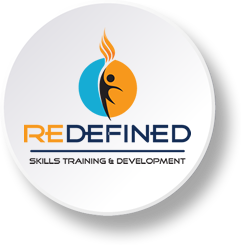INVEST IN YOUR
PROFESSIONAL GOALS TODAY!
Quick, Convenient & Affordable.

COURSE DURATION: 4 Days
OVERVIEW
The courses listed below are credit-bearing courses that are registered on the NQF, and they can articulate to full national qualifications and are verified and certified by the ETDP SETA.
WHO SHOULD ATTEND
This Skills Programme is suitable for trainers, ETDP’s, HR and Line managers, Supervisors, Subject Matter Specialists, Coaches and Mentors who needs to:
- Conduct workplace assessments
- Assess Competence
- Manage training Quality Assurance
- Evaluate training to NQF standards
- Evaluate prior learning
COURSE OVERVIEW
Assessment is a process an Assessor undergoes to determine whether a candidate is competent or not yet competent in a particular field of expertise by collecting evidence. An Assessor, therefore, uses different tools and systems to thoroughly scrutinize the evidence collected to determine if the candidate is capable of doing the job at hand. Assessment includes passing a ‘judgment’ done by a person called an Assessor to both theory and practical work presented by a candidate in response to given tasks.
COURSE OUTCOMES
In particular, people credited with this unit standard will be able to:
- Demonstrate understanding of outcomes-based assessment
- Prepare for assessments
- Conduct assessments
- Provide feedback on assessments
- Review assessments
COURSE CONTENT
Chapter 1: Overview of Education and Training in South Africa
This chapter provides a comprehensive overview of the Skills Development Framework and the National Qualifications Framework, laying a solid foundation for understanding both the objectives and the implementation of these frameworks. Furthermore, this chapter delves into the various role players involved in the Assessment Process, as well as the principles, methods, and instruments used for assessment. Assessors are introduced to a range of criteria that can be utilized when selecting appropriate assessment methods and instruments. By thoroughly exploring these key concepts, learners will develop a strong understanding of the importance of effective assessment practices in the context of skills development.
Chapter 2 : Prepare for Assessment
Chapter 2 provides aspiring Assessors with the essential skills required for effective assessment
preparation. This chapter delves into the detailed requirements necessary for assessment preparation, with a particular focus on designing outcome-based assessments that align with the learning outcomes specified in the Facilitation Plan. It is crucial to note that Assessors will also be equipped with the skills necessary for designing assessments that address the objectives of stakeholders, while also meeting the desired learning outcomes. Through a thorough exploration of these concepts, learners will gain a strong foundation in effective assessment design and preparation practices.
Chapter 3: Prepare Candidates for Assessment
This chapter provides an in-depth exploration of the various techniques utilized by Assessors to determine the readiness of candidates for assessment. Upon completing this chapter, Assessors will possess the skills required to effectively ascertain whether a candidate is prepared for assessment or not. In the event that a candidate is deemed unprepared, the Assessor will be quipped to prepare relevant documentation and schedule a pre-assessment meeting prior to conducting the assessment. Through a thorough examination of these key concepts, learners will develop a strong understanding of the importance of proper assessment readiness procedures in ensuring effective and fair assessment outcomes.
Chapter 4: Conducting assessments and document evidence
The fourth chapter of the Assessor course explains how assessments should be conducted, the tools for conducting assessment and the documents that are evidence that assessment has occurred. Assessors will also be taught on the language to use when assessing as well as the principles to follow in assessment.
Chapter 5 : Evaluation and judgement of assessment
The chapter explains how Assessors should evaluate assessments by checking their validity, accuracy, fairness, relevance and whether or not the assessments are current. Knowledge on how best to make a judgement against collected evidence is discussed in detail in this chapter. Assessors will be taught when to declare a candidate competent or not yet competent.
Chapter 6: Provide Feedback
Building upon the content covered in Chapter 5, this section provides a comprehensive overview of best practices for providing feedback to candidates following an assessment. Within this chapter, Assessors are taught to approach feedback in a professional and constructive manner, with a focus on promoting continued growth and development for candidates. Furthermore, the chapter delves into strategies for effectively addressing candidates who are deemed ‘not yet competent’, and provides insight into appeal procedures that candidates may pursue. Through a detailed exploration of these topics, Assessors will develop the skills and knowledge necessary to navigate complex feedback scenarios with confidence and professionalism.
Chapter 7: Review Assessment and recommend for Recognition of Prior Learning
In this chapter , Assessors are taught on how to identify strengths and weaknesses of the assessment tools used. Assessors are taught on identifying possible weaknesses in the design of the assessment tools used. Assessors are also taught when and under what circumstance to recommend candidates for prior learning.


